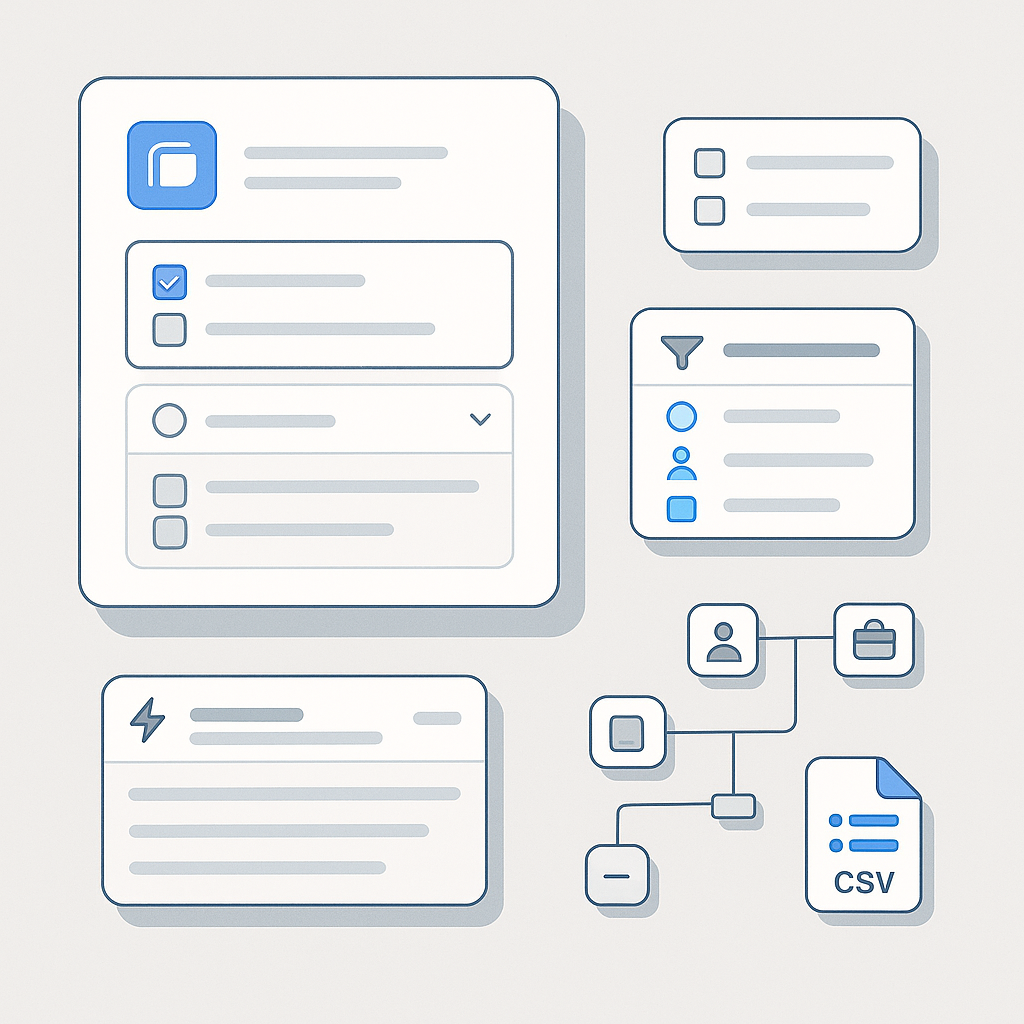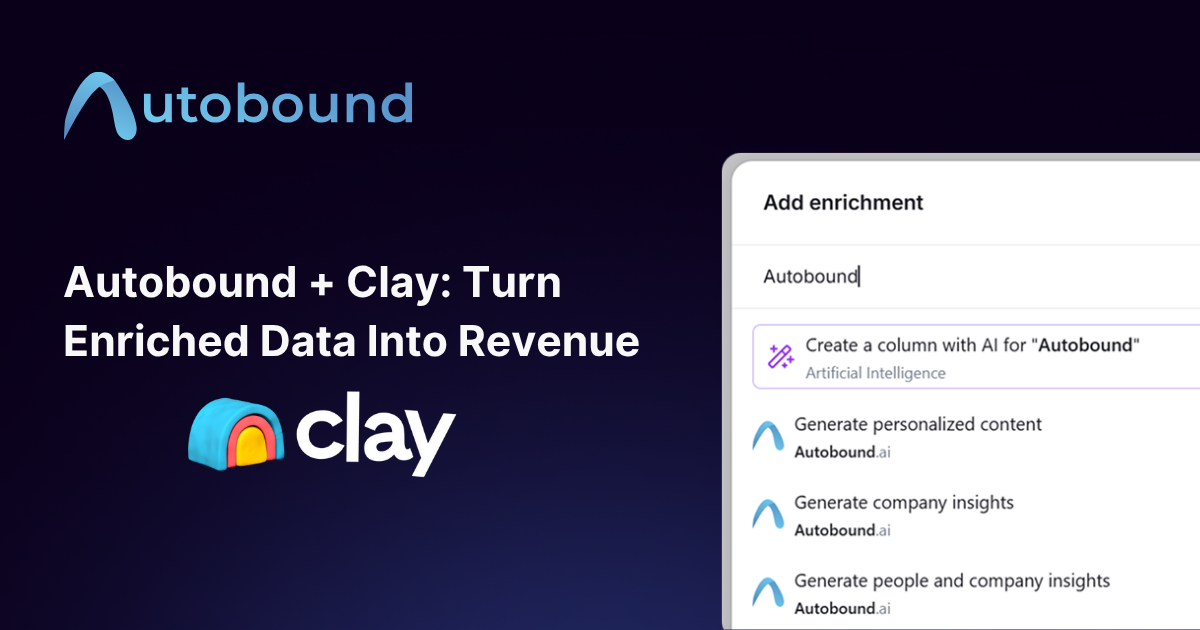I. Introduction: The Data Privacy Minefield (and the Opportunity Within)
Imagine this: you're the VP of Sales at a cutting-edge cybersecurity firm, your heart practically doing a victory lap as you lock eyes on a lead so perfect, so primed for your solution, that it's practically glowing with dollar signs. You're crafting the most eloquent, persuasive intro email the world has ever seen when—BAM—news breaks that this dream lead, this company you've been drooling over, just got hit with a GDPR fine that makes your marketing budget look like pocket change. Talk about a mood killer, right?
But hold on a second. Before you toss your laptop out the window and swear off cold outreach forever, consider this: this awkward, cringe-inducing scenario isn't just a testament to Murphy's Law—it's a flashing neon sign pointing towards a seismic shift in the B2B landscape. Data privacy violations are no longer relegated to the dusty corners of tech forums; they're front-page news, sparking public outrage, and sending chills down the spines of CEOs everywhere. And for savvy sales and marketing teams, this new reality isn't just a challenge—it's a golden opportunity to become trusted advisors, guiding companies through the treacherous data privacy minefield and towards secure, compliant solutions.
The urgency is palpable. Consumers are more privacy-conscious than ever, with a staggering 71% of U.S. adults expressing serious concerns about how the government uses their data, a figure that's been steadily climbing since 2019 (Source: Pew Research Center, 2023-10-18). They're demanding transparency, control, and accountability from the companies they do business with, and they're not afraid to vote with their wallets when those expectations aren't met. Yet, despite this growing awareness, a shocking number of companies are still playing catch-up, struggling to keep pace with evolving regulations, increasingly sophisticated cyberattacks, and the ever-growing mountain of data they collect. The result? A tidal wave of data breaches, lawsuits, and fines that can cripple even the most established businesses. We're not talking about a slap on the wrist here—GDPR fines alone reached an eye-watering €4.48 billion in 2023, impacting over 2,000 companies (Source: CMS Law, 2023-2024).
This perfect storm of heightened awareness and widespread vulnerability creates a golden opportunity for B2B companies offering data privacy solutions. Imagine this: instead of lobbing generic pitches into a sea of inboxes, you're tossing life preservers to companies desperately treading water, offering them a way to address their most pressing pain points precisely when they're feeling the heat.
This guide will equip you with the knowledge, the tactics, and the finesse to not only identify companies grappling with potential data privacy violations but to craft messaging that speaks directly to their anxieties, positions you as a trusted ally, and ultimately helps you navigate this sensitive landscape with both effectiveness and integrity.
II. Identifying Companies with Potential Data Privacy Violations
The Telltale Signs: Where to Spot Red Flags
Before you can swoop in with your data privacy cape billowing in the wind, you need to know who needs rescuing. Think of yourself as a data privacy detective, armed with a magnifying glass and a keen eye for clues that scream, "We need help!"
- Recent Data Breaches: Let's start with the most obvious sign—companies making headlines for data breaches are practically begging for your attention. They're reeling from the public relations nightmare, facing the wrath of regulators, and desperately trying to plug the holes in their sinking ship. This is your chance to swoop in, not as a vulture circling overhead, but as a lifeboat offering a safe passage to shore. Keep a close eye on data breach databases, security news outlets, and industry reports to identify businesses in crisis mode. A SaaS company specializing in data loss prevention, for example, could use a tool like "Have I Been Pwned" to pinpoint businesses that have recently experienced breaches and are likely scrambling for solutions.
- Industry and Geographic Risk Factors: Some industries are simply more prone to data privacy violations due to the sensitive nature of the information they handle. Healthcare, finance, and education, for instance, are prime targets for cybercriminals and subject to stringent regulations like HIPAA and FERPA. It's like leaving a trail of breadcrumbs in a forest full of hungry bears—trouble is bound to follow. Similarly, companies operating in regions with robust data protection laws, such as the European Union (GDPR) or California (CCPA), are more likely to face scrutiny and penalties for non-compliance. The key takeaway? Factor in industry and location when prioritizing your outreach—the higher the stakes, the greater the need for your solution.
- Outdated Tech Stacks and Security Practices: Remember that dusty old computer in your basement running Windows 95? Yeah, that's not a good look for data security. Companies clinging to legacy systems, lacking modern security measures like multi-factor authentication and encryption, or openly discussing their compliance struggles are practically waving giant red flags. Why? Because outdated technology is like a house with a leaky roof and cracked foundation—it's only a matter of time before disaster strikes. Look for companies that haven't invested in modern security solutions—they're prime candidates for an upgrade.
- High Employee Turnover or Rapid Growth: Companies undergoing periods of significant transition—whether it's a wave of layoffs, a hiring spree, or a rapid expansion into new markets—often find themselves with gaping holes in their data security. Onboarding and offboarding processes can be chaotic, leading to accidental data exposure, while rapid scaling can outpace a company's ability to implement robust security measures. It's like trying to build a house while simultaneously juggling chainsaws and riding a unicycle—something's gotta give. Keep an eye out for companies in flux—they might be desperate for help to regain control of their data.
- Negative Sentiment and Public Complaints: The internet never forgets, especially when it comes to data privacy mishaps. Monitor social media, review sites, and online forums for customer complaints about a company's data practices. A scathing review about a company selling customer data without consent or a flurry of tweets about a mishandled data breach can be a goldmine for identifying potential leads. Think of it as free market research—unhappy customers are often the first to sound the alarm when a company's data practices are shady.
Using Data Intelligence Tools to Your Advantage
Now that you know the warning signs, it's time to equip yourself with the tools to pinpoint those companies in need.
- Leverage Sales Intelligence Platforms: Sales intelligence platforms like ZoomInfo and LinkedIn Sales Navigator are treasure troves of B2B data, and many offer filtering options specifically designed to uncover data privacy risks. Look for filters related to "Technographics" or "Company News" to identify businesses mentioning compliance issues, lacking essential security solutions, or experiencing recent security incidents. For example, you could use ZoomInfo's "Company News" filter to surface businesses that have recently been mentioned in articles about data breaches or GDPR fines. It's like having a personal assistant who scours the internet for companies exhibiting risky data behavior—all you have to do is seal the deal.
- Set up Google Alerts and Social Listening: Become a fly on the wall of the internet by setting up Google Alerts for keywords related to data privacy violations within your target industries. Try alerts like "[Target Industry] data breach," "[Competitor Name] GDPR fine," or even broader terms like "data privacy lawsuit" to receive real-time notifications whenever relevant news or discussions pop up. Social listening tools can also be invaluable for monitoring social media conversations and sentiment around specific companies or industry trends. The goal is to be the first to know when a company's data privacy is making waves online—and to position yourself as the solution to their woes.
III. Crafting Hyper-Relevant Messaging: Speaking Directly to the Pain
You've identified companies in need—now it's time to craft messaging that cuts through the noise, speaks directly to their anxieties, and compels them to take action.
The Art of Empathy: Understanding the Prospect's Mindset
Before you even think about pitching your product, take a moment to step into your prospect's shoes. They're likely feeling a mix of anxiety, confusion, and maybe even a touch of denial. Your job is to acknowledge their fears, validate their concerns, and position yourself as a trusted guide through this complex landscape.
- Address the Fear: Don't shy away from the very real consequences of data privacy violations. Start by acknowledging the financial penalties, legal ramifications, and reputational damage that can stem from non-compliance. But remember, empathy is key. Instead of fear-mongering, use language that conveys understanding and a desire to help. For example, you might say, "You've poured your heart and soul into building [Company X], and the last thing you need is a data privacy misstep jeopardizing all that hard work."
- Emphasize Business Impact: While legal jargon and regulatory acronyms might be your bread and butter, your prospects likely care more about their bottom line than the intricacies of GDPR compliance. Connect data privacy violations to tangible business outcomes, such as lost revenue, stalled growth, and damaged brand equity. A study by Enzuzo found that a staggering 76% of consumers wouldn't buy from a brand they distrusted with their data (Source: Enzuzo, 2024). Use statistics like this to drive home the point that data privacy is not just a compliance issue—it's a business imperative that directly impacts their bottom line.
- Highlight the Opportunity Cost: Instead of framing compliance as a burden, position it as a chance to differentiate, build trust, and gain a competitive advantage. Consumers are increasingly drawn to companies that prioritize data privacy, and showcasing your commitment to responsible data practices can be a powerful differentiator in a crowded market. Share real-world examples of companies that have improved their brand image and customer loyalty by prioritizing data privacy. For example, you could highlight a company like Apple, which has built a reputation for fiercely protecting user data and has seen significant customer loyalty as a result (Source: Apple).
Tailoring Your Pitch: From Insights to Irresistible Offers
Now that you've established an empathetic connection, it's time to tailor your pitch to resonate with each prospect's unique challenges and priorities.
- Leverage the Power of Personalization: Remember all those insights you gathered during the identification phase? Put them to good use by crafting hyper-personalized messages that demonstrate you've done your homework and understand their specific situation. For example, you might say, "I noticed [Company X] was recently mentioned in a report on [Industry] data security challenges. We helped a similar company, [Company Y], overcome [Specific Challenge] by implementing our [Solution]." The more specific and relevant your message, the more likely it is to resonate with your prospect.
- Speak the Right Language for Each Persona: A VP of Sales will have different priorities than a CTO or a CEO. Tailor your messaging to resonate with each persona's unique pain points and motivations. For example, when targeting a VP of Sales, focus on how your solution can protect revenue and improve customer relationships. When reaching out to a CTO, highlight the technical capabilities of your solution and its ability to streamline compliance efforts. And when crafting a message for a CEO, emphasize the reputational and financial risks of data privacy violations and how your solution can mitigate those risks. Remember, it's not about you—it's about them and how you can help them achieve their goals.
- Offer Value Before the Pitch: Instead of launching into a hard sell right off the bat, consider offering something valuable upfront. A free data privacy audit, a guide to CCPA compliance tailored to their industry, or even just a willingness to share your expertise and insights can go a long way in building trust and positioning yourself as a valuable resource. People are more receptive to sales pitches when they feel like they're getting something out of it, so give them a reason to listen.
IV. Navigating the Ethical Landscape: Sensitivity and Transparency
Targeting companies with potential data privacy violations is a powerful tactic, but it's crucial to approach it with sensitivity, transparency, and an unwavering commitment to ethical practices.
The Tightrope Walk: Balancing Opportunity with Integrity
- Transparency is Key: Be upfront about how you identified their potential violation. Avoid being vague, misleading, or overly dramatic—it erodes trust and can backfire spectacularly. Instead, be direct and professional. For example, you might say, "My team proactively monitors data privacy news, and we noticed [Specific Event]..." Honesty is the best policy, especially when you're dealing with sensitive information.
- Don't Be "That Guy": Nobody likes a know-it-all, especially when they're feeling vulnerable. Avoid a tone that's overly alarmist, accusatory, or exploitative. Your goal is to be a helpful advisor, not a fear-mongering bully. Instead of saying, "Your company is in serious trouble if you don't fix this now," try a more empathetic approach: "We understand that navigating data privacy regulations can be challenging, and we're here to help you find the right solutions for your business."
- Respect Data Minimization: Just because you've identified a potential violation doesn't give you free rein to hoard unnecessary information about a prospect. Only collect and use the data you need for this specific outreach, and handle it with the utmost care and respect. Remember, you're advocating for responsible data practices—demonstrate that you practice what you preach.
Building Long-Term Trust: It's More Than Just a Sale
- Be a Resource: Even if a prospect doesn't become a customer immediately, strive to be a valuable resource for them. Share relevant content, offer insights, and be available to answer their questions. Building a relationship based on trust and mutual respect will pay dividends in the long run. Remember, people buy from people they like and trust, so focus on building relationships, not just closing deals.
- Focus on Partnerships: Frame your solution as a way to help them achieve their goals, not just as a transaction. Understand their business objectives, challenges, and aspirations, and demonstrate how your solution can help them get where they want to go. Become a trusted advisor, not just a vendor.
- Champion Data Privacy: Become a vocal advocate for responsible data practices within your industry. Share your knowledge, participate in industry events, and support organizations promoting data privacy. This not only builds credibility but also attracts like-minded businesses that value data privacy as much as you do. Become a thought leader in the data privacy space, and you'll attract customers who share your values.
V. Conclusion: Data Privacy as a Business Imperative
The data privacy landscape is evolving at an unprecedented pace, and the stakes have never been higher. Companies that bury their heads in the sand, hoping the issue will magically disappear, do so at their own peril. The reality is that data privacy regulations will only become more stringent, consumer expectations will continue to rise, and cyber threats will grow in sophistication.
The good news? By embracing data privacy as a business imperative, companies can not only mitigate risk and ensure compliance but also unlock a world of opportunities. Building trust with customers, attracting top talent, and gaining a competitive advantage are just a few of the benefits of a privacy-first approach.
B2B sales and marketing teams that master this new landscape will be best positioned to thrive. By understanding the challenges, embracing ethical practices, and crafting compelling messaging, you can connect with prospects facing urgent data privacy concerns and guide them toward solutions that protect their business, their customers, and their reputation. The future is secure, privacy-forward, and ripe with opportunity—are you ready to seize it?
About Autobound
Autobound's leading AI-powered platform delivers 350+ unique insights for go-to-market teams from financial filings, social media activity, 35 news events, competitor trends, job changes and more. Trusted by 7,000+ companies including TechTarget and validated by 220+ 5-star G2 reviews, we're unlocking hyper-personalization at scale, with native integrations for Salesloft, Outreach, and more. Leverage our developer-friendly API, try our Chrome extension, try our platform free, or contact our team to eliminate guesswork and drive measurable growth →
Built with love in San Francisco, CA




